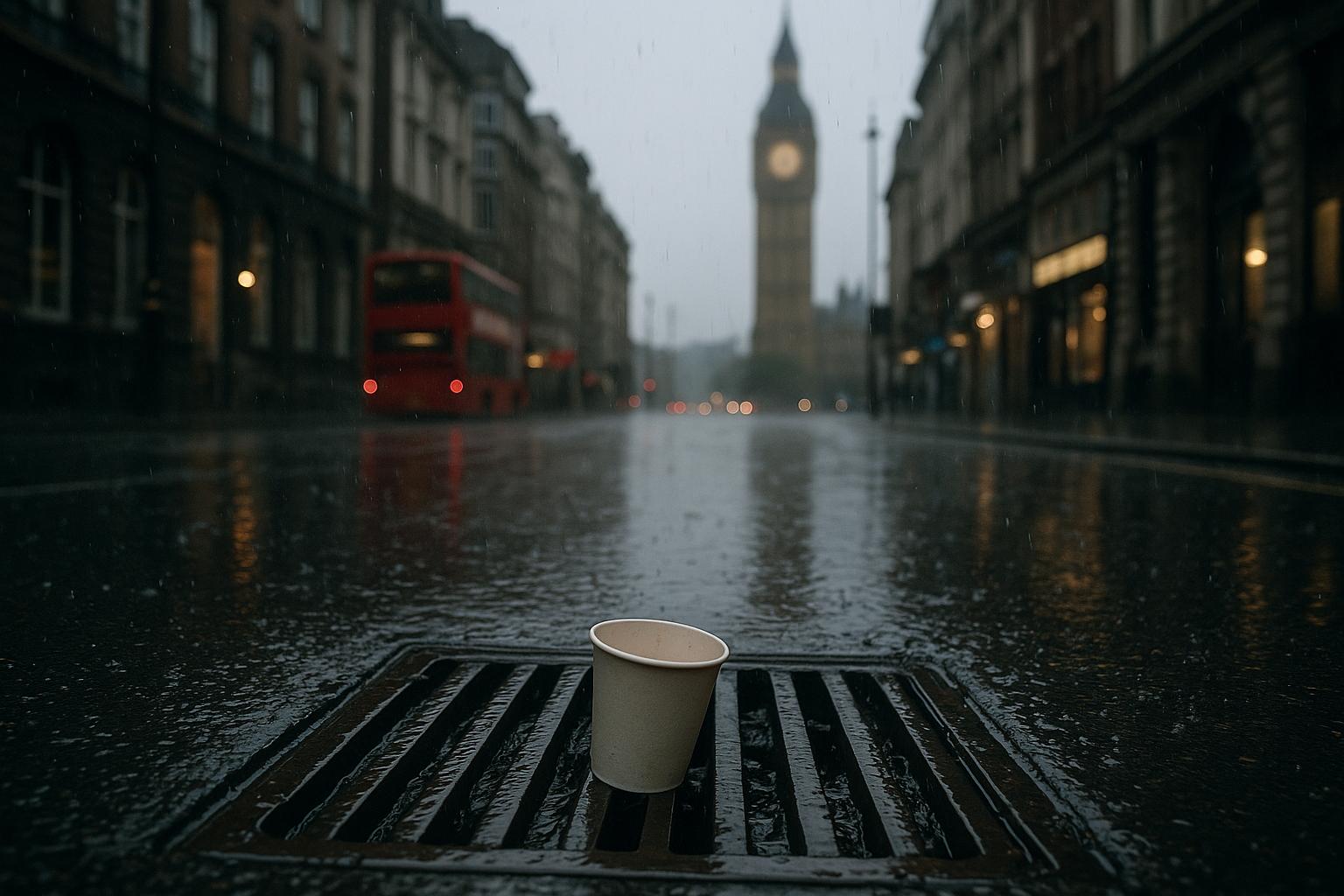A woman from Kew, London, was recently issued a £150 fine after pouring leftover coffee from her reusable cup down a street drain in Richmond, highlighting the strict enforcement of environmental regulations in the area. Burcu Yesilyurt said she did not realise this action was illegal and felt the fine was disproportionate given the small amount of liquid and her attempt to act responsibly by avoiding spilling the coffee on a bus she was about to board. She was approached by three enforcement officers immediately after pouring the coffee and received the fine under section 33 of the Environmental Protection Act 1990, which prohibits depositing waste in a manner likely to pollute land or water, including liquids in drains.
Richmond Council confirmed they had reviewed body camera footage from the officers involved and stated that the enforcement was carried out appropriately and sympathetically. Following an appeal, the council decided to revoke the fine. Yesilyurt, now free from penalty, is advocating for clearer public communication of such laws, suggesting that signs near bins and bus stops could help inform residents about the illegality of disposing of liquids into street drains.
The Environmental Protection Act 1990, under which the fine was issued, consolidates UK legislation on environmental protection and waste management. It empowers local authorities to take enforcement action for various forms of illegal waste disposal, including littering and fly-tipping, with penalties designed to protect the environment from pollution and harm. Richmond Council actively pursues waste enforcement, issuing warnings, fixed penalty notices, or prosecutions depending on the severity of the offence. The council also focuses on educating the public and businesses about their responsibilities in waste disposal to maintain clean and safe streets.
This incident underscores the council’s commitment to safeguarding local waterways and preventing pollution, reinforced by their recent review of advice on disposing of liquids in public places. The council promised updates to public guidance will be made available on their website to raise awareness. While some residents may view such enforcement as harsh, authorities maintain that these measures are necessary to protect the environmental health of the borough.
This case illustrates the challenges local governments face balancing strict environmental regulations with public understanding and compliance. Clearer communication and education may help prevent similar situations in the future while supporting the broader goal of environmental stewardship.
📌 Reference Map:
- Paragraph 1 – [1] (The Independent)
- Paragraph 2 – [1] (The Independent)
- Paragraph 3 – [2] (Legislation.gov.uk), [3] (Richmond Council)
- Paragraph 4 – [3] (Richmond Council), [1] (The Independent)
Source: Noah Wire Services
